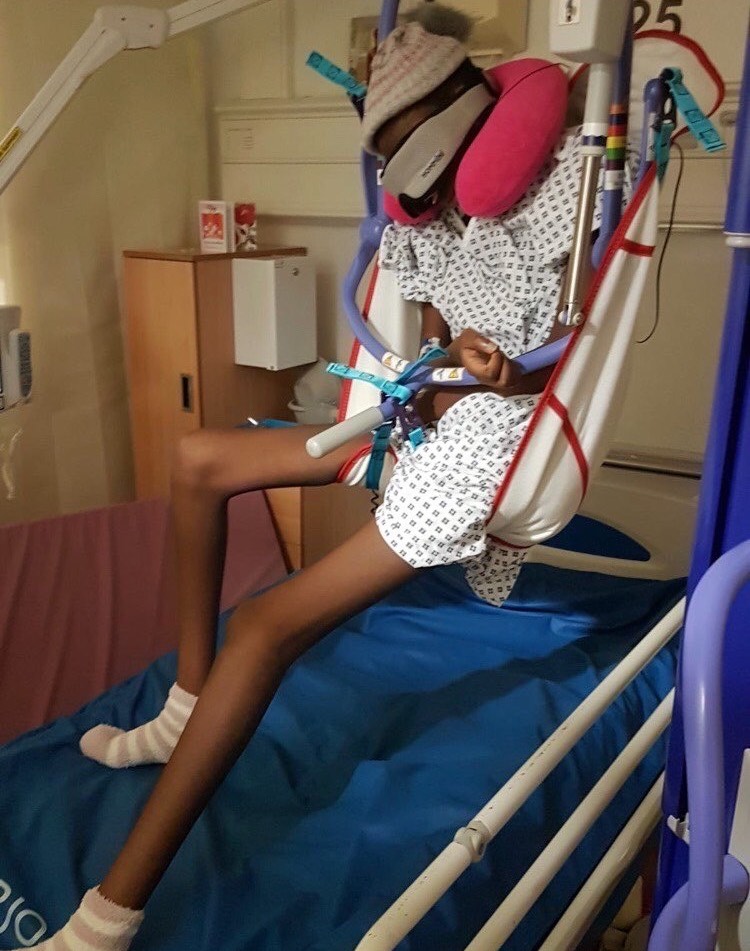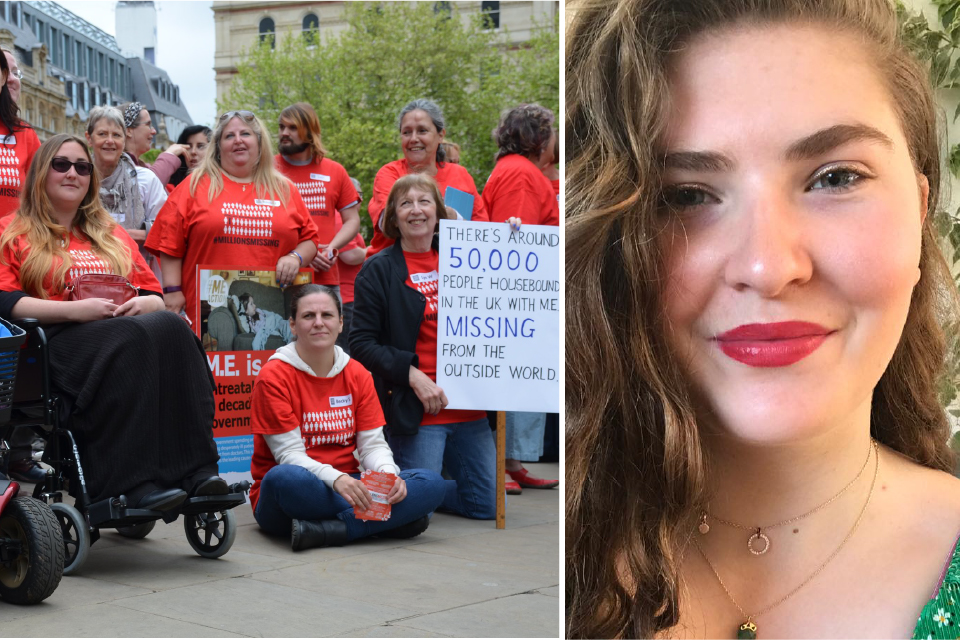Content warning: Contains an image of an ME patient, at her request, which readers may find distressing.
There are growing numbers of Covid-19 patients reporting ongoing symptoms, for some lasting months after the initial infection. The cluster of post-viral symptoms commonly includes extreme fatigue, brain fog and widespread pain. For ME patients this is all too familiar a list.
ME – also known as myalgic encephalomyelitis, chronic fatigue syndrome or ME/CFS – is defined as a “long-term (chronic), fluctuating, neurological condition that causes symptoms affecting many body systems, more commonly the nervous and immune systems”. It often occurs after viral illness and, while it is unclear whether coronavirus has unique long-term impacts, the University of Leicester has warned that up to 10% of coronavirus sufferers could be at higher risk of developing ME.
Negative stereotypes about the illness still pervade mainstream media and the medical establishment, often leaving patients embarrassed.
Danni Watts
If the Covid ‘long-haulers’ do go on to be diagnosed with ME, I only hope they don’t endure the same suffering that we in the ME community already have. ME is known to be as disabling as multiple sclerosis and congestive heart failure, yet in the 1980’s it was often dismissed as ‘yuppie flu’. Negative stereotypes about the illness still pervade mainstream media and the medical establishment, often leaving patients embarrassed.
Stigma is not the only barrier facing ME patients. Access to information and to safe treatment is also something they have to fight for. The National Institute for Health and Care Excellence’s (Nice) guidelines state cognitive behavioural therapy and graded exercise (GET) as the two main forms of treatment. However, studies have shown GET to be harmful, including a 2010 ME Association survey in which 56.5% of patients reported graded exercise made their condition worse.
The heartbreaking reality of GET is clear from the experiences of ME patient Taliana*, who told me: “GET exacerbated my symptoms, and left me worse than I was before. I don’t think I will ever recover from it.” Another ME patient, who did not wish to be named, told me that they took part in NHS activity management being able to walk and after only a year of treatment required the use of a wheelchair.

Gigi Joseph-Garrison, 18, who has severe ME. This is her in hospital weighing 36kg. Her family faced an “appalling struggle” to convince hospital staff her illness was not psychological. By the time she came into the remit of the NHS she was described as being “close to death”. She is raising awareness of her condition via her Twitter and Instagram accounts and requested this image be included. Credit: Supplied
The risks of GET are well documented yet many NHS centres do not clearly publish risks of treatment. A 2009 Oxford University Hospital booklet still available on their website explains that guided GET can be undertaken “without causing ill effects”. This statement is misleading at best, making me doubt whether patients can truly give informed consent to treatment. Consent is a human rights issue, and generally medical consent must be informed in order to comply with Article 8 of the Human Rights Act 1998. The right of everyone to enjoy the “highest attainable standard of health” is also internationally recognised. Whilst I am relieved Nice have published a statement explaining GET may not be suitable for people recovering from Covid, their stance is unclear for Covid patients who may go onto be diagnosed with ME.
The current guidelines are largely based on a 2011 trial, which has since been criticised by scientists over alleged conflicts of interests and the lowering of recovery thresholds. In fact, Carol Monaghan MP in 2018 told Parliament: “When the full details of the trial become known, it will be considered one of the biggest medical scandals of the 21st century.” Whilst this trial cost around £5 million pounds , funding of biomedical research has been appallingly low.
Like all patients, we must treat people suffering long-term effects of Covid-19 with dignity, compassion and care – everything which ME patients have been denied.
Danni Watts
ME patients have been neglected for decades. I hope we learn from past mistakes in order to help coronavirus patients who may go on to be diagnosed with the disease. We must update the Nice guidelines to remove GET as a treatment, and ensure patients are told the risks of any treatment so that they are able to give informed consent. In addition, to help the NHS cope with a ‘post-viral tsunami’ now is the time to start serious investment in biomedical research.
Like all patients, we must treat people suffering long-term effects of Covid-19 with dignity, compassion and care – everything which ME patients have been denied. I live in hope that one day we can extend this care to ME patients, like me, too.
*Name changed to protect privacy
The views expressed in this article are those of the authors and do not necessarily reflect the views of EachOther.
About ‘The Inspired Source’ Series
This pilot series is part of our work to amplify the voices of aspiring writers that are underrepresented in the media and marginalised by society. Each piece examines a human rights issue the author or their community is affected by and preferably have a position on how we might begin to address it. This is a brand new series, so we are likely to adapt and refine it as things progress. Find out more about the series and how to send us a pitch on this page.




